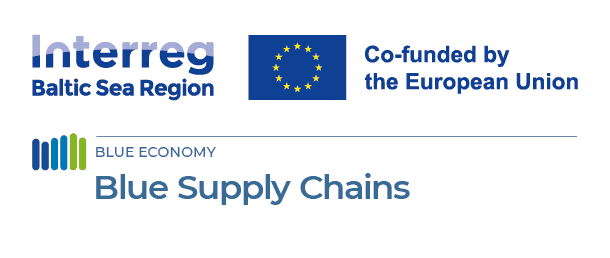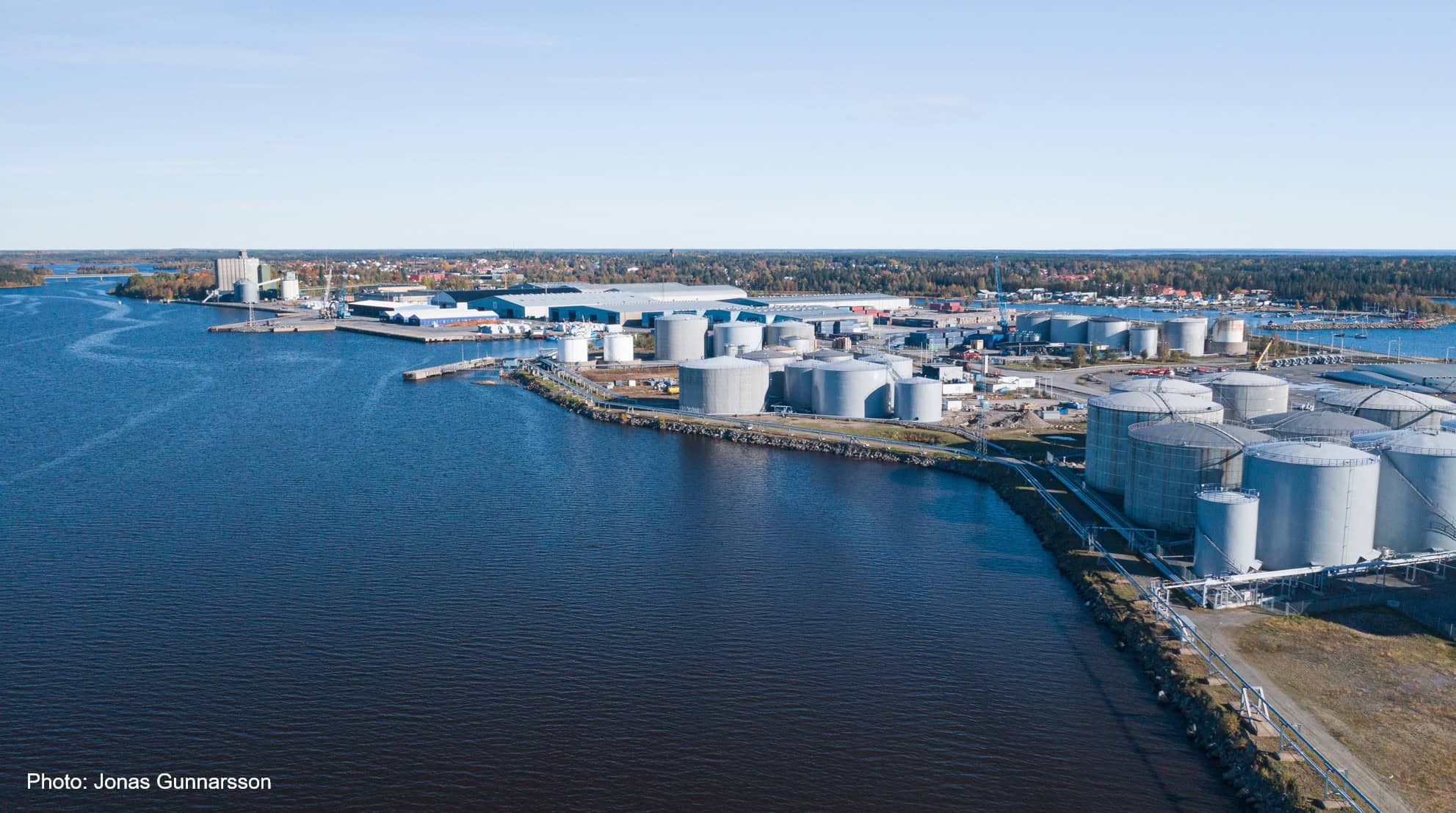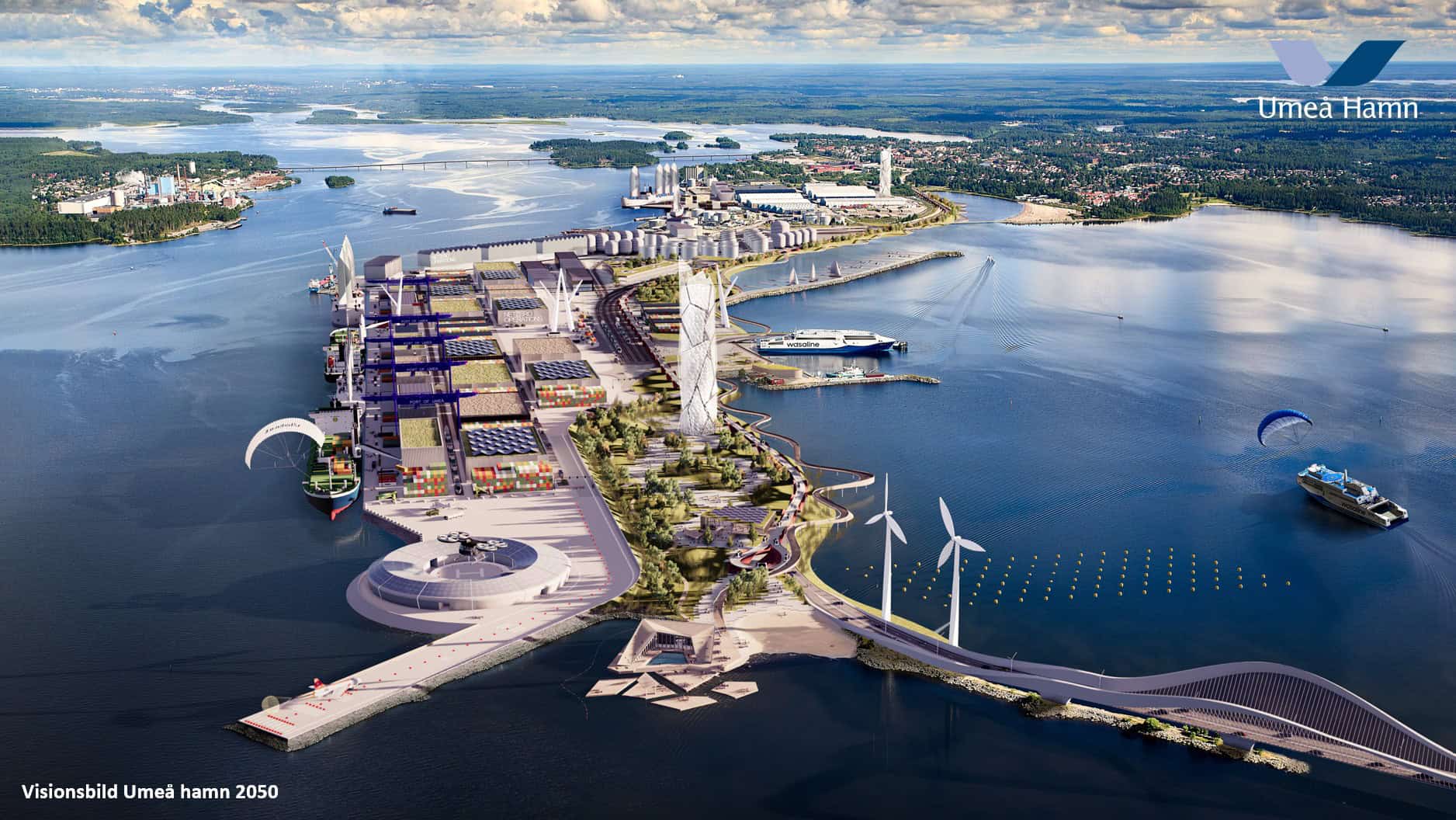
BSC - Project Story: Decarbonizing Maritime Transport - A Roadmap for Sustainable Ports
25 April 2025
Transforming Ports into Clean Energy Hubs for a Greener Future
The shipping industry faces an urgent and complex challenge: reducing its dependency on fossil fuels. While other sectors are actively decarbonizing, maritime transport remains a laggard, still relying on conventional fossil fuels for over 99% of its Energy consumption. Given that global shipping accounts for nearly 3% of total greenhouse gas (GHG) emissions, failing to act could significantly hinder international climate goals. Yet, while other sectors are rapidly cutting their carbon footprints, shipping has been slow to change. The reason? A deep reliance on fossil fuels, complex logistics, and aging fleets. But that tide is turning.
A Baltic-Wide Collaboration with Global Implications
In a groundbreaking collaboration across the Baltic Sea region, the Blue Supply Chains project is charting a new course for ports to become engines of decarbonization. By turning ports into energy hubs for green fuels and clean electricity, the project is laying out practical steps for reducing maritime emissions. A key outcome of this work—“Decarbonizing Maritime Transport: A Roadmap for Sustainable Ports” highlights the path forward, using Umeå, Sweden, as a flagship example.
Why Focus on Ports?
Ports are more than gateways for goods; they are strategic nodes in global supply chains. They can also become fueling stations for the future—offering ships clean alternatives like hydrogen, methanol, ammonia, and shore-side electricity. But transitioning to green fuels isn’t just a matter of switching out pumps. It requires coordinated action among port authorities, energy suppliers, shipping companies, cargo owners, and regulators.
What’s Holding Back Green Shipping?
A key challenge is cost. Alternative fuels are still more expensive than traditional marine fuels. Infrastructure for bunkering and storage is limited. New technologies come with safety and regulatory hurdles. And the shipping industry, built around decades-old vessels, is slow to turn.
But the landscape is shifting. New EU regulations – like FuelEU Maritime, Emission Trading System (ETS), and AFIR (Alternative Fuels Infrastructure Regulation) – are creating real financial incentives for cleaner shipping. Meanwhile, over 6,800 companies worldwide, including hundreds in Sweden, have committed to science-based climate targets, driving demand for low-emission transport.
Port authorities, traditionally focused on logistics and compliance, are now emerging as central players in the green transition. They are not just enabling new fuel infrastructure but also aligning with local climate goals, facilitating collaboration across sectors, and acting as community managers for sustainability.
“Ports that act now will gain a strategic edge,” says Linda Styhre from IVL. “They can attract greener ships, reduce local pollution, and become vital nodes in a zero-carbon economy.”
Sure, not all ports can become energy hubs, but those that will soon be able to offer alternative solutions will gain a strategic advantage in the future shipping landscape.
The Umeå Roadmap: A Six-Step Model for Green Ports
Ports like Umeå are proving what’s possible. With strong local partnerships, political will, and renewable energy access, Umeå is developing a full-scale plan to supply green hydrogen-based fuels by 2040. The port’s innovative approach could serve as a blueprint for ports across the Baltic Sea and beyond.
At the heart of this transformation is a six-step methodology developed by the Swedish Environmental Research Institute (IVL).
The steps guide ports through:
- Setting clear goals and timelines
- Mapping current fuel use and energy infrastructure
- Projecting future energy needs and opportunities
- Assessing the viability of new technologies
- Engaging stakeholders to explore concrete solutions
- Planning for implementation and continuous evaluation
By following this roadmap, Umeå is not only planning for hydrogen and electro-methanol production but also improving port electrification, digitizing operations, and enabling rail-port connections to reduce emissions across the entire transport chain.
Interested? Have a read and learn from the report below!
PDF-file download: Decarbonizing Maritime Transport_A Roadmap for Sustainable Ports_(EN Version)
Follow the further implementation and get latest insights in the dedicated section on our website!









